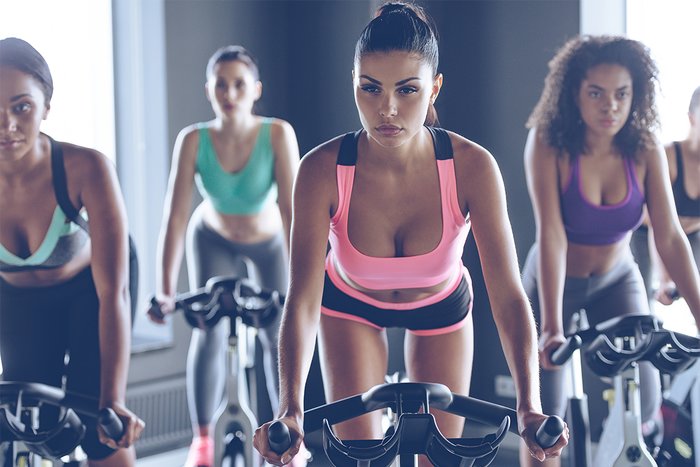Finding the right workout partner is almost as difficult as finding a spouse, but hooking up with the right one can pay big dividends. Among them, support, accountability, and motivation are often cited. You can even create a healthy sense of competition that pushes you just a little more.
In the weight room, I find that I'm often able to complete heavier sets or do more reps than I'd otherwise be able to do on my own. Besides being a spotter and cheerleader on heavy sets, a partner can watch your form and provide feedback, especially as you fatigue. I also find I'm less likely to blow off cardio sessions when someone is waiting for me.
Is there a quantifiable benefit? A study in the Annals of Behavioral Medicine sought to determine the training effects of a workout partner on cardio work and whether it could appreciably improve results.[1]

In the study, 58 women were divided into the following groups that exercised on a stationary bike at a given percentage of their heart rate (65 percent of heart-rate reserve) for time on six separate occasions:
One group exercised by themselves.
One group exercised with an onscreen partner via virtual link but independently from them.
One group exercised with an onscreen partner, but the "partner" was in fact a taped loop, so the partner was always better than the subject. The subject was also told the performance would be judged by whichever partner stopped exercising first, essentially motivating the subject to train longer.

g-stockstudio/Shutterstock
The results showed that solo riders lasted on average 10.6 minutes before stopping. The group that trained with independently working partners averaged 19.77 minutes, and the group that trained with a teammate motivated by not wanting to be the low score trained the longest at 21.89 minutes.
The third group, in fact, was on their bikes more than double the amount of time than the cyclers who did it alone.
It should be noted that significantly increasing workout length like this can lead to major fitness gains over time, especially during aerobic-type training. (Be aware that pushing your body too far too often can be counterproductive in terms of muscle strength and hypertrophy.)
Working with a partner in either a friendly or competitive way can allow you to achieve better and faster results during cardio training, and you may be able to reap additional gains with someone who is in better physical condition than you are as you try and keep up with them.
Reference
- Irwin, B. C., Scorniaenchi, J., Kerr, N. L., Eisenmann, J. C., & Feltz, D. L. (2012). Aerobic exercise is promoted when individual performance affects the group: a test of the Kohler motivation gain effect. Annals of Behavioral Medicine, 44(2), 151-159.


